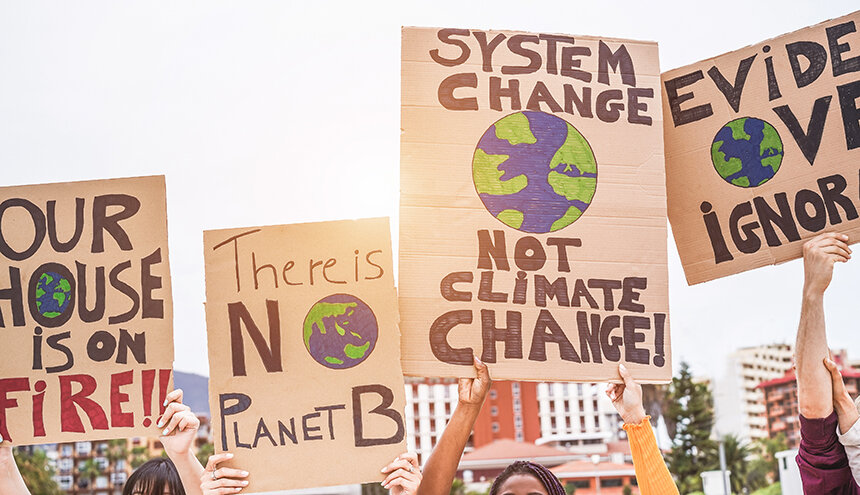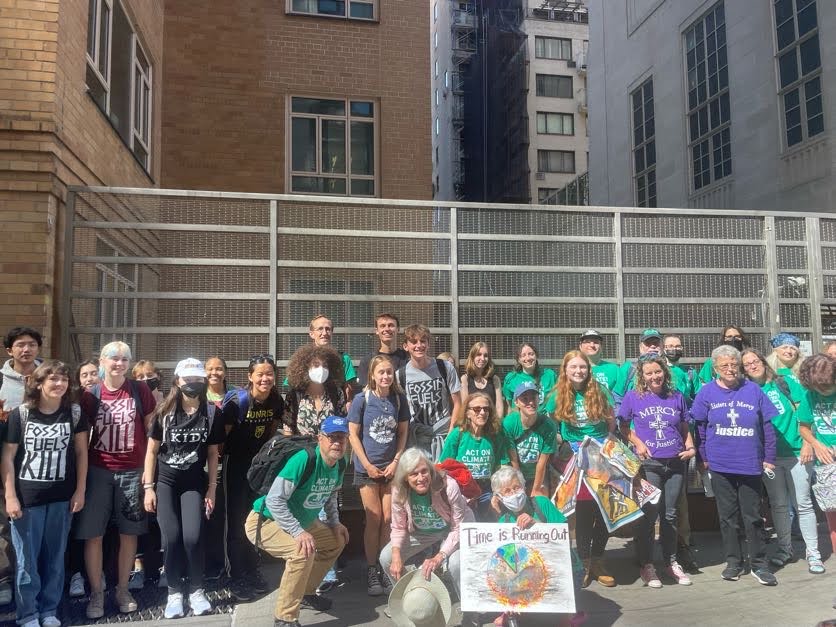Solar Industry Likes to Keep Its Underbelly Hidden
Local scholar says growing industry exploits labor of Black, Brown, and poor communities worldwide
February 14, 2021
Renewable energy is often touted as the best way to cut carbon emissions and simultaneously save money. And at the top of the list of renewables is solar; it’s a growing industry with an increasingly affordable product.
But there is a dark side to solar, according to a Brown University professor.
During a recent online presentation titled “Aligning Community Solar Campaigns with Antiracist Principles,” Myles Lennon, a dean’s assistant professor of environment and anthropology at Brown, dug into the ethical dilemma that solar presents. His Feb. 3 presentation was hosted by Climate Action Rhode Island.
While solar is undoubtedly better than burning fossil fuels and can provide cleaner energy to low-income communities, it still fits within an often-racist economic framework, one that exploits the labor of Black, Brown, and poor communities across the globe, according to Lennon.
He said problems with the solar supply chain run deep.
Chinese companies dominate the solar panel manufacturing industry, controlling 60 percent of the global capacity and, in 2019, producing 193 gigawatts of solar products.
Many of these companies cut costs by keeping worker numbers low while simultaneously increasing production. One such solar panel manufacturing company, the LONGi Green Energy Technology Co., has increased its solar output from 350 megawatts to 6,000 megawatts in a span of 10 years, yet maintains the same number of workers.
And as recently as last month, concerns arose that the Chinese government is using the oft-oppressed Uighur minority as a means of providing free labor within the growing polysilicon industry.
The creation of solar panels also involves toxic chemicals such as silicon tetrachloride, which can burn the skin and increase the risk of lung disease. According to the Foundation for Economic Education, “For any user of solar panels, this is not an immediate risk as it only affects manufacturers and recyclers.”
Hidden in that statement, however, are the men and women making solar panels who are exposed to these toxic chemicals.
This is the underbelly of the solar industry, and it’s one that Lennon doesn’t want you to ignore in the quest for cleaner, more affordable energy. He sees the somewhat unregulated solar supply chain as antithetical to the anti-racist green-energy efforts that the country needs.
Yet, he noted, this extractive model is often overlooked in the pursuit of lowest cost.
Lennon told a story about his time volunteering with an energy democracy activist group that was working with a low-income community to build a community solar project.
“The group initially regarded solar as a really commonsense way of making local housing more affordable because many community members lived under the threat of electric and gas utilities shutoffs, and several had actually lost heat and power due to an inability to pay their bills,” he said. “By reducing electricity costs solar could, in theory, ease this burden and thereby work toward more affordable housing. So they went about and crafted a broad, local energy democracy agenda.”
This agenda was comprised of three goals: securing a sizable community-shared solar space that residents could purchase a portion of; establishing a solar co-op with job training and communal ownership; and launching an effort to democratize the local public utility commission.
As the effort moved forward, Lennon noticed that much of the project’s focus was on securing the lowest solar cost.
“Noticeably, the discussion at these meetings almost never focused on the extractive-regenerative binary,” he said. “Instead, community members who had been burdened by years of false promises for equitable development fixated on the price of solar … not on long-term structural change or anti-racist action. What was supposed to be a campaign for energy democracy rooted in principles of racial and economic justice appeared to be morphing into a market-based effort to secure competitive prices for consumers.”
Lennon continued his presentation by noting that instead of following the lowest price, communities should be banding together in giant numbers — he went as far as to say regional — and use their purchasing power as leverage to demand better supply-chain practices from solar providers. Essentially, holding off on grabbing the marshmallow and waiting a little longer for a more holistic, large-scale, anti-racist solar program that simultaneously reduces the cost of utilities but also helps dissuade unethical solar-manufacturing practices.
“What if … all the communities in the Northeast got together and said, ‘We’re going to [expletive] up the solar industry and do something completely different?’” Lennon asked. “‘We’re going to demand occupational safety and health measures and supply chain monitoring measures and much, much bigger investments in renewable energy.’ It’s really bringing a mindset to it, so people are engaged in not just reducing their costs, but actually building this new structural system.”
But virtual audience members were skeptical of this grand vision.
Krystal Noiseux compared Lennon’s argument to giving someone a checklist to help them buy the better, more sustainable brand of milk even though that milk is more expensive, and they can’t afford it. She said that, in the end, even the most socially conscious customer will buy the cheaper milk if that’s all they can afford.
“When I’m thinking about equity and justice, I struggle with the thought that if you are someone of means you can say, I get it, I’m going to buy the $4.99 milk, but if you’re not, you’re going to say I only have $1.99 to buy the milk,” Noiseux said.
Others believed that large-scale government regulation was the only realistic way that the average person could have a chance to make demands from large solar companies.
But Lennon argued that now, with the energy of the Black Lives Matter movement and its tenet of questioning social structures, is the perfect time to start an anti-racist solar movement. The power of the people can be leveraged to create global change.
“If you go to a bunch of residential solar contractors who are used to doing projects that are 5 kilowatts or 10 kilowatts, if you go to them and say we have 500 kilowatts worth of project for you to do and this is what we want in return, they will do it,” he said.




The largest solar advocacy group in the US, The Solar Energy Industries Association, has come out in full force against child labor abuses in Chinese solar manufacturing.
https://www.seia.org/news/statement-claims-forced-labor-solar-industry
Looking at the comment from Mr Sabetti – what is the solar industry doing about it other than condemning the practice? Have they sanctioned solar companies that violate the pledge? Has the SEIA conducted their own inspections of Chinese companies?
This along with the lawsuits from Green Development does not speak well of the solar industry overall
Speaking of that "more sustainable brand of milk," not to mention its superior taste, eco RI would do well to revisit the state of dairy farming in Rhode Island on exactly this issue. What remains of the industry, locally, are the last remnants of the critically endangered Family Farm Model. Organic farming on a sustainable Family Farm Model was pioneered in the ’60’s and ’70’s, and became viable on a national basis in the 80’s and ’90’s. This last was a period where organic dairy was seen as the last economically sustainable refuge of the Family Farm Model. However, taking notice was the Industrial Farm Model, and with the US Dept. of Agriculture and the advertising industry as its wholly owned subsidiaries, it has so successfully manipulated the unwitting "organic" consumer that truly organic dairy farmers are being liquidated at rates similar to their non-organic brethren. And if the "organic" consumer thinks there are no ill consequences, consider just the map of the Electorial College. …The most recent disaster in our region occurred last August when 89 northern New England and New York truly organic Family Farm Model producers were served their death notices by Horizon Organic Milk, the Industrial Organic Model giant, who no longer needs that family farm milk for advertising cover.